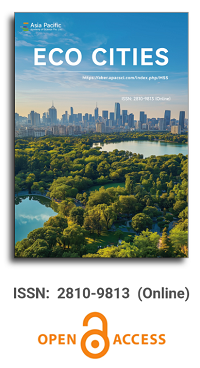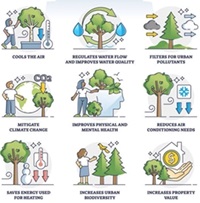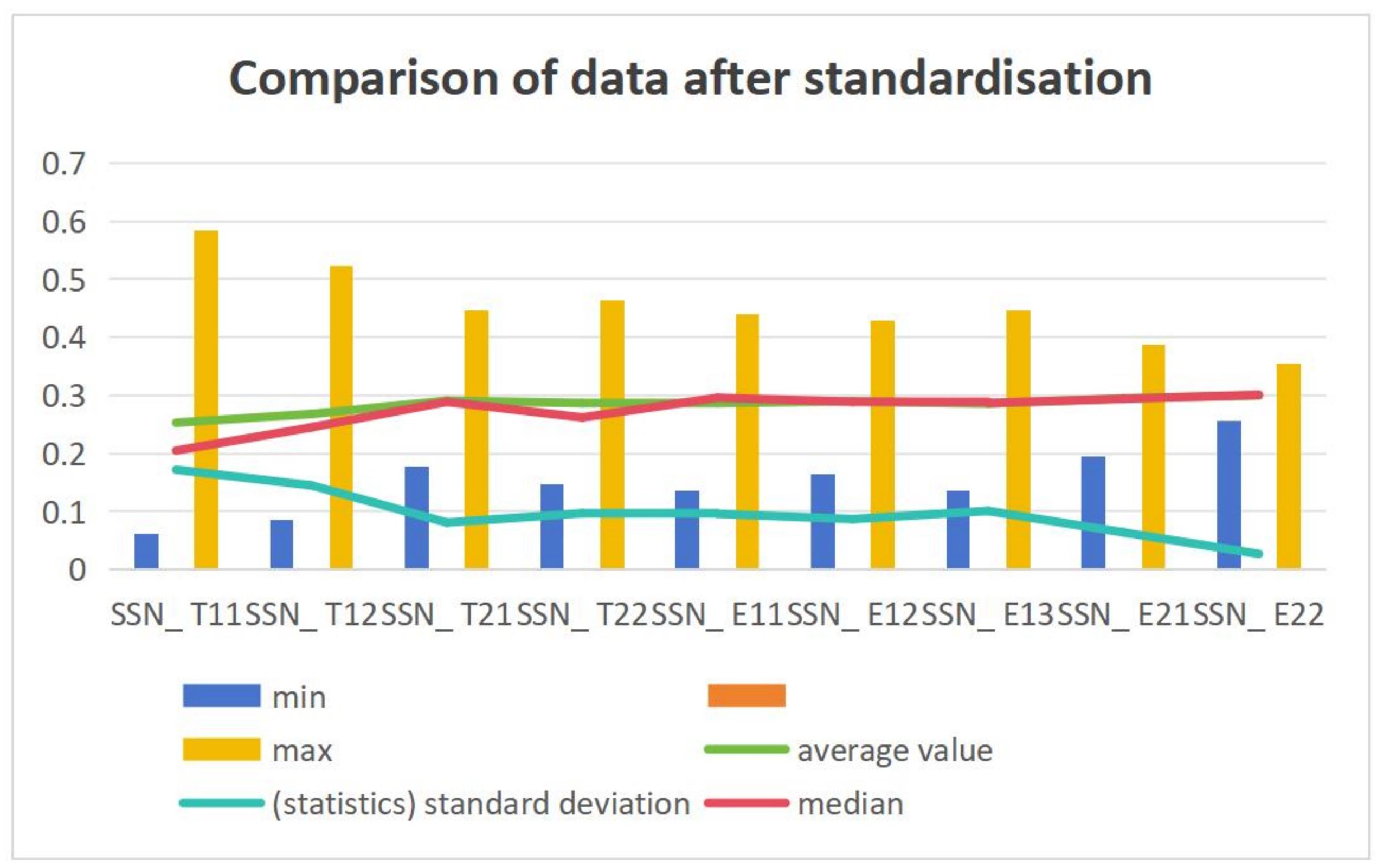


A study on the green transformation path of industrial heritage from the perspective of user experience: A case study of Jiangsu Garden Expo Park
Vol 5, Issue 2, 2024
Download PDF
Abstract
With the advancement of economic structural transformation and urban renewal, the green transformation of industrial heritage sites is increasingly recognized as one of the key strategies for promoting sustainable urban development. Taking Jiangsu Garden Expo Park as an example, this study thoroughly explores the impact of the green transformation of industrial heritage sites on user experience and the relationship between user value perception, satisfaction, and behavioral intention. Based on the experience economy theory, the study classifies user experiences into four types: education, aesthetics, entertainment, and escapism, and examines how these experiences affect users’ functional perceived value, emotional perceived value, satisfaction, and behavioral intention. The results of the study show that educational, aesthetic, and escapist experiences have a significant positive effect on users’ emotional perceived value, while functional perceived value has a stronger effect on satisfaction than emotional perceived value. User satisfaction has a significant positive effect on behavioral intention, which suggests that enhancing user experience play a greater role in promoting positive user behaviour towards green transformation of industrial heritage sites. This study also provides recommendations for developing public participation, improving infrastructure development, cultivating spiritual connotations, and promoting cultural innovation to help the green transformation and tourism development of industrial heritage sites. The findings of this study provide certain theoretical basis and practical guidance for the green transformation of industrial heritage sites, explain the importance of optimising the development of industrial heritage sites from the perspective of user experience, and hopefully provide constructive suggestions for enhancing the attractiveness and sustainability of industrial heritage sites.
Keywords
References
- Tu X, Huang G, Wu J, et al. How do travel distance and park size influence urban park visits? Urban Forestry & Urban Greening. 2020; 52: 126689. doi: 10.1016/j.ufug.2020.126689
- Loughran K. Environmental Authenticity: Constructing Nature in Postindustrial Parks. Qualitative Sociology. 2024; 47(3): 441–463. doi: 10.1007/s11133-024-09570-0
- Yang W, Chen Q, Huang X, et al. How do aesthetics and tourist involvement influence cultural identity in heritage tourism? The mediating role of mental experience. Frontiers in Psychology. 2022; 13. doi: 10.3389/fpsyg.2022.990030
- Draus P, Lovall S, Formby T, et al. A green space vision in Southeast Michigan’s most heavily industrialized area. Urban Ecosystems. 2018; 22(1): 91–102. doi: 10.1007/s11252-018-0765-7
- Gai S, Fu J, Rong X, et al. Users’ views on cultural ecosystem services of urban parks: An importance-performance analysis of a case in Beijing, China[J]. Anthropocene, 2022; 37: 100323. doi: 10.1016/j.ancene.2022.100323
- Moscatelli M. Heritage as a Driver of Sustainable Tourism Development: The Case Study of the Darb Zubaydah Hajj Pilgrimage Route[J]. Sustainability. 2024; 16(16): 2071-1050. doi: 10.3390/su16167055
- Pine BJ, Gilmore JH. Welcome to the experience economy. Harvard Review. 1998; 7(8): 97–105.
- Shi J. Postmodern Nostalgia and Industrial Heritage Tourism--The Case of Changchun Film Studio's Heritage Tourism[J]. Journal of Jinan University (Social Science Edition), 2022; 32(2): 131-141. doi:
- Lan T, Zheng Z, Tian D, et al. Resident-Tourist Value Co-Creation in the Intangible Cultural Heritage Tourism Context: The Role of Residents’ Perception of Tourism Development and Emotional Solidarity. Sustainability. 2021; 13(3): 1369. doi: 10.3390/su13031369
- Alavi P, Sobouti H, Shahbazi M. Adaptive re-use of industrial heritage and its role in achieving local sustainability. International Journal of Building Pathology and Adaptation. 2022. doi: 10.1108/ijbpa-09-2021-0118
- Ennew CT, Binks MR. Impact of participative service relationships on quality, satisfaction and retention: an exploratory study. Journal of Business Research, 1999; 46(2): 121–132. doi: 10.1016/S0148-2963(98)00016-2
- Rintamäki T, Kirves K. From perceptions to propositions: Profiling customer value across retail contexts. Journal of Retailing and Consumer Services. 2017; 37: 159–167. doi: 10.1016/j.jretconser.2016.07.016
- Research Group of Institute of Industrial Economics, Chinese Academy of Social Sciences. Research on Green Transformation of Chinese Industry. China Industrial Economy, 2011; (4): 05–13.
- Shi X, Wang X, Chen P. A network-based approach for analyzing industrial green transformation: a case study of Beijing, China[J]. Journal of Cleaner Production, 2021; 317: 128281. doi: 10.1016/j.jclepro.2021.128281
- Chen CF, Chen FS. Experience quality, perceived value, satisfaction and behavioral intentions for heritage tourists. Tourism Management. 2010; 31(1): 29–35. doi: 10.1016/j.tourman.2009.02.008
- Kang SK, Lee CK, Lee DE. Examining Cultural Worldview and Experience by International Tourists: A Case of Traditional House Stay. Asia Pacific Journal of Tourism Research. 2015; 21(5): 477–499. doi: 10.1080/10941665.2015.1062406
- Hosany S, Sthapit E, Björk P. Memorable tourism experience: A review and research agenda. Psychology & Marketing. 2022; 39(8): 1467–1486. doi: 10.1002/mar.21665
- González-Viralta D, Veas-González I, Egaña-Bruna F, et al. Positive effects of green practices on the consumers' satisfaction, loyalty, word-of-mouth, and willingness to pay[J]. Heliyon, 2023, 9(10). doi: 10.1016/j.heliyon.2023.e20353
- Afshardoost M, Eshaghi MS. Destination image and tourist behavioural intentions: A meta-analysis. Tourism Management. 2020; 81: 104154. doi: 10.1016/j.tourman.2020.104154
- Tam K P. Gratitude to nature: Presenting a theory of its conceptualization, measurement, and effects on pro-environmental behavior[J]. Journal of Environmental Psychology, 2022, 79: 101754. doi: 10.1016/j.jenvp.2021.101754
- Üzülmez M, Ercan İştin A, Barakazı E. Environmental awareness, ecotourism awareness and ecotourism perception of tourist guides[J]. Sustainability, 2023, 15(16): 12616. doi: 10.3390/su151612616
- Jian Y, Lin J, Zhou Z. The role of travel constraints in shaping nostalgia, destination attachment and revisit intentions and the moderating effect of prevention regulatory focus. Journal of Destination Marketing & Management. 2021; 19: 100516. doi: 10.1016/j.jdmm.2020.100516
- Parasuraman A, Ball J, Aksoy L, et al. More than a feeling? Toward a theory of customer delight. Journal of Service Management. 2020; 32(1): 1–26. doi: 10.1108/josm-03-2019-0094
- Zhou X, Zhang C. Scale development and dimensional structure of the cultural heritage value of the Great Wall. Chinese Cultural Heritage, 2020; (06): 4–14.
- Li X. Discussing the Aesthetics of the Grand Canal and Its Aesthetic Value. Art Observation. 2021; (10): 13–15.
- Megeirhi HA, Woosnam KM, Ribeiro MA, et al. Employing a value-belief-norm framework to gauge Carthage residents’ intentions to support sustainable cultural heritage tourism. Journal of Sustainable Tourism. 2020; 28(9): 1351–1370. doi: 10.1080/09669582.2020.1738444
- Wu N, Chen H, Fu A. Influence of recreation environment and recreation experience on tourists’ satisfaction and travelling intention—A case study of Hainan Dongzhaigang Mangrove Forest Tourism Area. Wetland Science. 2021; 19(01): 64–77.
- Zhang G, Chen X, Law R, et al. Sustainability of Heritage Tourism: A Structural Perspective from Cultural Identity and Consumption Intention. Sustainability. 2020; 12(21): 9199. doi: 10.3390/su12219199
- Tang L, Zhu D, Qi X. Research on the Relationship between Cultural Identity and Tourist Loyalty—Taking Huizhou Cultural Tourism Zone as an Example. East China Economic Management. 2015; 29(11): 54–58.
- Li Q, Zhou L. Tourist Place Imagery, Place Attachment and Tourists’ Environmental Responsibility Behaviour—A Case Study of Tourist Resorts in Zhejiang Province. Journal of Tourism. 2014; 29(01): 55–66.
Supporting Agencies
Copyright (c) 2024 Yuning Hou, Sunny Han Han
License URL: https://creativecommons.org/licenses/by/4.0/

This site is licensed under a Creative Commons Attribution 4.0 International License (CC BY 4.0).

Chinese Academy of Sciences, China
Indexing & Archiving
Asia Pacific Academy of Science Pte. Ltd. (APACSCI) specializes in international journal publishing. APACSCI adopts the open access publishing model and provides an important communication bridge for academic groups whose interest fields include engineering, technology, medicine, computer, mathematics, agriculture and forestry, and environment.



.jpg)

.jpg)



